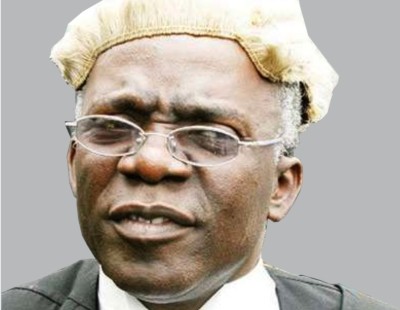The apartheid (separate development) conception of federalism that has dominated the unprovoked debate on restructuring of Nigeria has finally got a critical, alternative outline. The outline emerges in the following five quotations picked from an intervention by Femi Falana, (SAN) at the 50th anniversary of the killing of Lt. Colonel Adekunle Fajuyi, the Military Governor of Western Region in the violent events of July 1966. The quotations have no organic link to each other, being a random exercise but, put together, they add up to a counter-narrative – Editor
… Former Vice President Atiku Abubakar recently reopened the debate on restructuring. While the Presidency dismissed the call, many interest groups have commended Alhaji Abubakar for his intervention. It is interesting to note that the attention of the Nigerian people has not been drawn to the restructuring of the national economy, which has been carried out in the country by successive regimes to enrich a few people. Incidentally, it was Atiku who presided over the restructuring of the nation’s economy through the liquidation of public assets and the privatization of the commanding height of the economy. The policy led to the official cornering of the commonwealth by imperialism and its local lackeys. All public enterprises and major assets including oil blocks were sold to the so called “core investors”.
…My submission is that the nation cannot be seriously restructured without equitable redistribution of wealth. Therefore, those who have cornered our commonwealth should not be allowed to talk of restructuring in a vacuum. In other words, the campaign for restructuring should encompass the decentralization and democratisation of political and economic powers, which have been privatised by all factions of the ruling class. In particular, the struggle for federalism has to confront the control of the national economy by imperialism and the comprador bourgeoisie.
…Already, due to lack of funding by the federal government, the Nigeria Police Force has become a state police as police commands are largely funded by state governments. For example, the federal government supplied the Lagos state police command with only 20 vehicles in the last 8 years whereas the state government donated 700 vehicles to the police command during the same period. Since he who pays the piper dictates the tune, it has been established that the state commissioners of police are more loyal to state governors than the President. On account of such abuse of the federal police force by the governors, many people are opposed to the establishment of state police. I am of the strong view that the fears of intimidation by state police can be allayed if the control of the police is democratised by ensuring that the police council in every state is peopled by accredited representatives of credible civil society organizations.
…Today, no candidate can contest election in any state without the endorsement of the governor. Unlike the President whose budgets are scrutinized by federal legislators, the budgets presented by state governors to the state houses of assembly are passed by state legislators without debates. Similarly, the assembly members are afraid to screen the list of nominees sent to them for confirmation by state governors.

Atiku Abubakar
…In the light of the foregoing, the campaign for true federalism is meaningless if it is not anchored on democratization, popular participation, accountability and transparency. Otherwise, powers are going to be transferred from Abuja to the emperors manning the state governments if the status quo remains. The debate should therefore be redirected to address the viability of the 36 states and 774 local governments structure, the expansion of the democratic space and popular control of political and economic powers by mass organisations in the country. Those who are genuinely interested in true federalism should support the struggle for the redistribution of the commonwealth and the devolution of political and economic powers from the centre to state governments with clearly defined responsibilities.




























